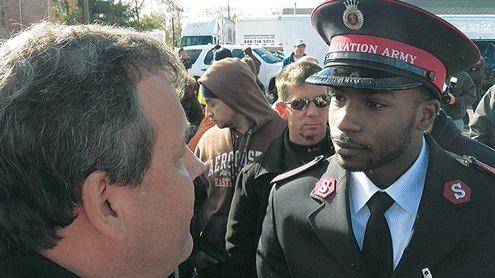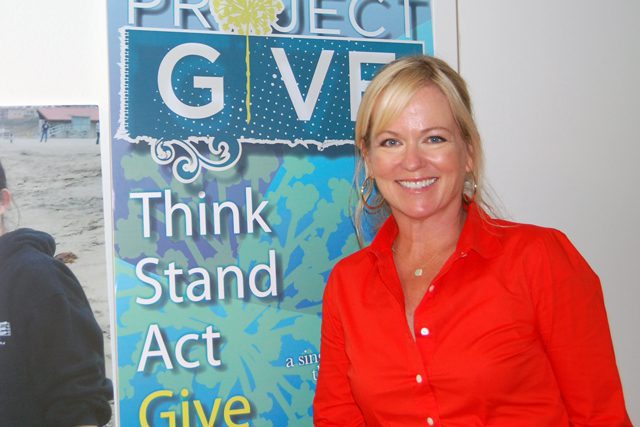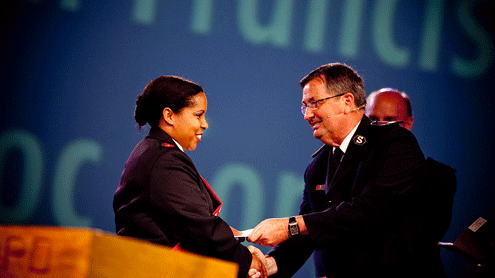The Salvation Army works through setbacks caused by the nor’easter.
The Salvation Army continues to provide relief on the East Coast after a nor’easter storm inflicted another bout of destruction on areas still reeling from Hurricane Sandy’s impact.
The nor’easter storm, which gets its name from its strong northeasterly winds blowing in from the ocean, temporarily slowed relief services from the Army, which has provided more than 932,000 meals and 688,000 beverages to approximately 200,000 impacted residents.
“We are very concerned about the impact this storm will have on areas that are still without food and electricity,” said Commissioner Israel Gaither, The Salvation Army’s Eastern territorial commander. “We’re taking every precaution and are committed to making sure The Salvation Army can meet the expected need.”
The nor’easter increased the already high demand for basic necessities in communities throughout New Jersey and New York.
“With [the] Mid-Atlantic storm, we are seeing a sharp rise in the need for warm clothing, hot meals and water,” said Major George Hood, national community relations and development secretary for The Salvation Army. “As the storm moves north, The Salvation Army has called in requests for supplies to not only replenish the need created by Sandy, but to answer the need created by this nor’easter.”

in Little Ferry, N.J. Photo courtesy of the New Jersey Divsion
In New York City, The Salvation Army—the lead agency for the City’s Food Access Plan—is providing meals, hydration and emotional support to thousands. The effort of the Food Access Plan brings together resources from several members of the Volunteer Organizations Active in Disasters (VOAD) including the American Red Cross, as well as the City Council, the NYPD, the National Guard and dozens of volunteers from across New York City. With the assistance of 400 National Guard troops, service established in public parks and playgrounds in the hardest hit areas.
As the Army assesses the long-term needs of each affected community, many residents remain fearful of the storm season’s uncertainty.
“It’s [an] overwhelming feeling of frustration that’s probably the worst for the victims of Hurricane Sandy,” said Major Scott Kelly of Staten Island. “I see that on people’s faces every day. They just don’t know what to expect next.”
The Army was forced to suspend mobile feeding operations in parts of New Jersey until the storm cleared. The Army previously lost a canteen to Sandy, due to flood waters that engulfed the vehicle. Each canteen is able to serve thousands of meals and drinks per day when operating at full capacity. The Salvation Army is supporting first responders and survivors with food and emotional and spiritual care in 15 shelters throughout 10 counties.
In Maryland and West Virginia, where two feet of snow left thousands without power and in dire need, The Salvation Army supported evacuees with food and shelter.
In addition to food, hydration, and emotional and spiritual care, The Salvation Army is also supplying residents with clean-up kits containing brooms, mops, buckets and cleaning supplies, hygiene kits, shower units, and first-aid supplies.
FedEx, Target, The PNC Foundation, Albertsons Markets, the NFL, the NBA, and the Oakland A’s Community Fund have all donated generously to the Army’s hurricane relief efforts.
Laura Fyn, youth ministries assistant in the Greater New York Division, who volunteered in Salvation Army relief work, said that the Army will continue its relief efforts for as long as is necessary.
“Life is nowhere near getting back to ‘normal’ in these communities and for so many more affected by [Hurricane] Sandy, but we know that when the media and the world has forgotten the disaster that will take years to rebuild, The Salvation Army will be there to serve with its hand outstretched until the very end.”
Donors can give online at salvationarmyusa.org or by calling 1-800-SAL-ARMY (1-800-725-2769). Donors may also text “NYSA” to 52000 to make a $10 donation through your mobile phone; to confirm your gift, respond with the word, “Yes.”

















